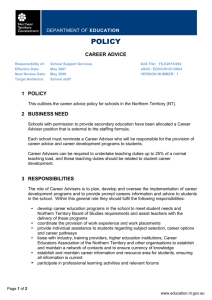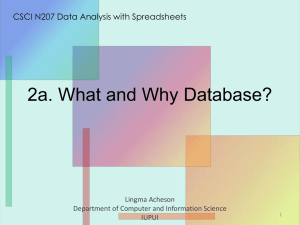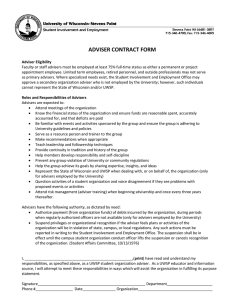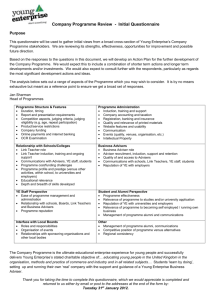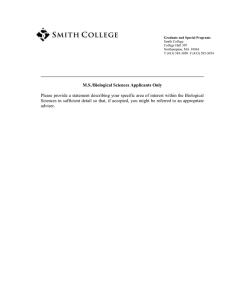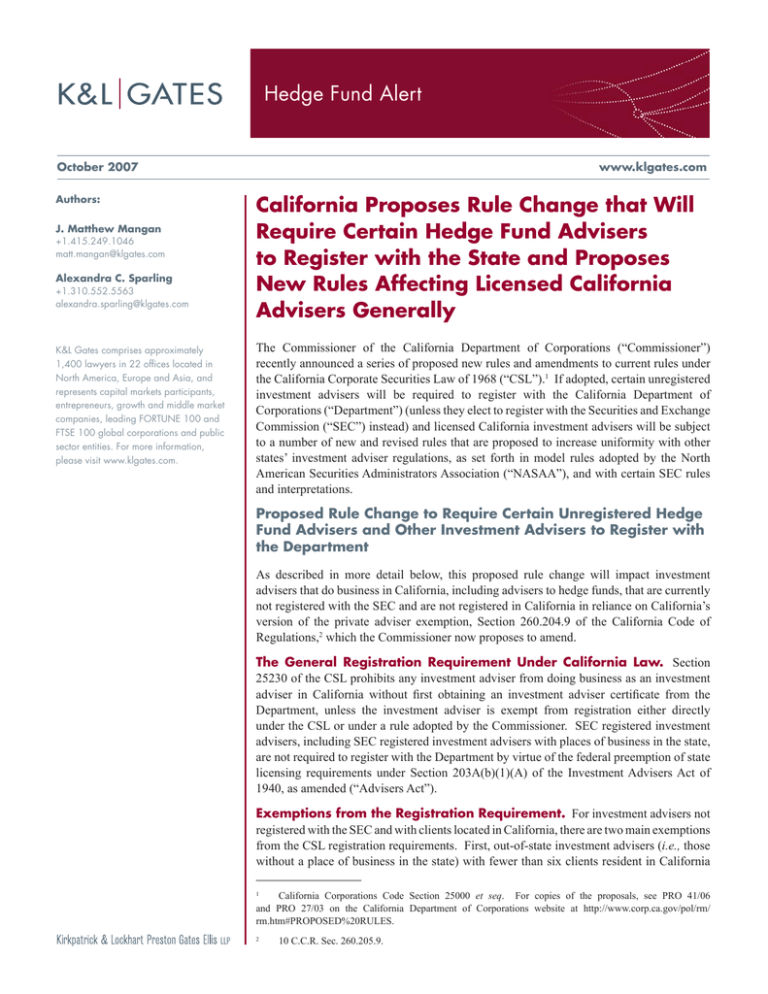
Hedge Fund Alert
October 2007
Authors:
J. Matthew Mangan
+1.415.249.1046
matt.mangan@klgates.com
Alexandra C. Sparling
+1.310.552.5563
alexandra.sparling@klgates.com
K&L Gates comprises approximately
1,400 lawyers in 22 offices located in
North America, Europe and Asia, and
represents capital markets participants,
entrepreneurs, growth and middle market
companies, leading FORTUNE 100 and
FTSE 100 global corporations and public
sector entities. For more information,
please visit www.klgates.com.
www.klgates.com
California Proposes Rule Change that Will
Require Certain Hedge Fund Advisers
to Register with the State and Proposes
New Rules Affecting Licensed California
Advisers Generally
The Commissioner of the California Department of Corporations (“Commissioner”)
recently announced a series of proposed new rules and amendments to current rules under
the California Corporate Securities Law of 1968 (“CSL”).1 If adopted, certain unregistered
investment advisers will be required to register with the California Department of
Corporations (“Department”) (unless they elect to register with the Securities and Exchange
Commission (“SEC”) instead) and licensed California investment advisers will be subject
to a number of new and revised rules that are proposed to increase uniformity with other
states’ investment adviser regulations, as set forth in model rules adopted by the North
American Securities Administrators Association (“NASAA”), and with certain SEC rules
and interpretations.
Proposed Rule Change to Require Certain Unregistered Hedge
Fund Advisers and Other Investment Advisers to Register with
the Department
As described in more detail below, this proposed rule change will impact investment
advisers that do business in California, including advisers to hedge funds, that are currently
not registered with the SEC and are not registered in California in reliance on California’s
version of the private adviser exemption, Section 260.204.9 of the California Code of
Regulations,2 which the Commissioner now proposes to amend.
The General Registration Requirement Under California Law. Section
25230 of the CSL prohibits any investment adviser from doing business as an investment
adviser in California without first obtaining an investment adviser certificate from the
Department, unless the investment adviser is exempt from registration either directly
under the CSL or under a rule adopted by the Commissioner. SEC registered investment
advisers, including SEC registered investment advisers with places of business in the state,
are not required to register with the Department by virtue of the federal preemption of state
licensing requirements under Section 203A(b)(1)(A) of the Investment Advisers Act of
1940, as amended (“Advisers Act”).
Exemptions from the Registration Requirement. For investment advisers not
registered with the SEC and with clients located in California, there are two main exemptions
from the CSL registration requirements. First, out-of-state investment advisers (i.e., those
without a place of business in the state) with fewer than six clients resident in California
1
California Corporations Code Section 25000 et seq. For copies of the proposals, see PRO 41/06
and PRO 27/03 on the California Department of Corporations website at http://www.corp.ca.gov/pol/rm/
rm.htm#PROPOSED%20RULES.
2
10 C.C.R. Sec. 260.205.9.
Hedge Fund Alert
in the preceding 12-month period are not required to
register with the state.3 Second, California’s parallel
provision to Section 203(b)(3) of the Advisers Act
(“Private Adviser Exemption”), set forth in Reg.
Section 260.204.9 (“California Exemption”), provides
an exemption from registration with the Department to
any person who: (1) does not hold itself out generally
to the public as an investment adviser; (2) has fewer
than 15 clients; (3) is exempt from registration with
the SEC pursuant to the Private Adviser Exemption;
and (4) either has assets under management of
$25 million or more or provides investment advice
only to venture capital companies.
Proposed New Rules to Increase
Uniformity with NASAA Model Rules
and SEC Rules and Interpretations
The Proposed Rule Change. The Commissioner
now proposes to revise the California Exemption to
remove the reference to investment advisers having
15 or fewer clients and having $25 million or more
in assets under management, such that the California
Exemption will now specifically relate only to advisers
to venture capital companies (as defined in the rule).
Electronic Filing of Form ADV Part II
(Reg. Section 260.231). Under the existing
rules, an investment adviser must file Part 1 of Form
ADV with the Commissioner through the Investment
Adviser Registration Depository (“IARD”), but Part II
of that form may currently be filed in paper as opposed
to electronically. The proposed amendment would
incorporate the recent upgrade to the IARD system
and require investment advisers to file Part II of Form
ADV electronically through the IARD system.
As a result, many unregistered investment advisers
with offices and/or clients located in California,
including those who are not registered with the SEC
because they rely on the Private Adviser Exemption
and are not registered with the Department because
they currently rely on the California Exemption, would
be required to register either with: (1) the Department,
thus becoming subject to additional obligations and
restrictions (including a host of new proposed and
updated rules, as discussed below); or (2) the SEC.
In particular, this proposed rule is likely to affect
unregistered investment advisers to hedge funds with
more than $25 million in assets under management.
Thus, if this rule change is enacted as proposed,
unregistered investment advisers should consider, if
registration with the SEC is an option, whether they
would prefer to register with the Department or the
SEC. As a result, we are summarizing below some
additional rule changes proposed by the Department
and contrasting them with the SEC’s requirements to
assist such advisers in making this decision.
The written comment period for this proposed rule
ends at 5:00 p.m. on November 26, 2007.
3
The Commissioner also proposes to adopt, repeal,
and amend a number of rules generally applicable to
investment advisers registered with the Department
in order to bring the rules and regulations applicable
to California registered investment advisers into
conformity with those of other states and to officially
adopt a number of unwritten policies observed by the
Commissioner’s examination staff but never officially
adopted.
Performance-Based Advertising (Reg.
Section 260.235). The existing rule sets forth
various advertising practices by an investment
adviser that constitute fraudulent, deceptive, or
manipulative acts. The proposed amendment would
permit the advertisement of past performance (both
actual performance or model results) only if the
advertisement discloses all material facts necessary to
avoid any unwarranted inference and sets forth certain
required disclosures to be made in connection with
an advertisement of past performance. The stated
purpose of the proposal is to increase uniformity with
investment adviser regulation at the federal level by
incorporating the principles set forth in the SEC NoAction Letter Clover Capital Management, Inc. (pub.
avail. Oct. 28, 1996), by setting forth certain required
disclosures for the advertisement of past performance
data.
Under the proposed amendment, model and actual
performance results may not be advertised if they:
(1) fail to disclose the effect of material market
or economic conditions on the results portrayed;
See Section 25202 of the CSL.
October 2007 | 2
Hedge Fund Alert
(2) include model or actual results that do not reflect
the deduction of advisory fees, brokerage, or other
commissions, and any other expenses that a client
would have paid or actually paid; (3) fail to disclose
whether and to what extent the advertised results reflect
the reinvestment of dividends and other earnings;
(4) suggest or make claims about the potential for
profit without also disclosing the possibility of loss;
(5) compare model or actual results to an index
without disclosing all material facts relevant to the
comparison; and (6) fail to disclose any material
conditions, objectives, or investment strategies used
to obtain the results advertised.4
In addition, model performance results may not be
advertised if they: (1) fail to disclose prominently the
limitations inherent in model results, particularly the
fact that such results do not represent actual trading
and that they may not reflect the impact that material
economic and market factors might have had on the
adviser’s decision-making if the adviser were actually
managing a client’s money; (2) fail to disclose, if
applicable, that the conditions, objectives or investment
strategies of the model portfolio changed materially
during the time period portrayed in the advertisement
and, if so, the effect of any such change on the results
portrayed; (3) fail to disclose, if applicable, that the
adviser’s clients had investment results materially
different from the results portrayed in the model; and
(4) fail to disclose that the advertised results involve
model performance rather than actual performance.
And, finally, actual performance results may not
be advertised if they fail to disclose prominently, if
applicable, that the results portrayed relate only to
a select group of the adviser’s clients, the basis on
which the selection was made, and the effect of this
practice on the results portrayed, if material.
Notably, the proposed rule amendment includes
an “Internet site” within the definition of an
“advertisement” under the rule.
Written
Disclosures
(Reg.
Section
260.235.5).
Existing rules do not require
investment advisers to provide clients or prospective
4
Gross performance information should still be permitted to
be shown to prospective clients in one-on-one presentations where
participants have an opportunity to discuss and ask questions
concerning the type of fees charged, provided certain disclosures,
including the impact of fees on performance, are made at the time of
the presentation. See SEC No-Action Letter Investment Company
Institute (pub. avail. September 23, 1988).
clients with a written disclosure statement. Under
the proposed rule, however, which incorporates
NASAA model rule 203(b)—commonly known as
the “Brochure Rule”—an investment adviser would
be required to deliver Part II of its Form ADV to each
prospective and actual advisory client: (1) not less
than 48 hours prior to entering into any investment
advisory contract with such client or prospective
client; or (2) at the time of entering into any such
contract, if the advisory client has a right to terminate
the contract without penalty within five business
days after entering into the contract. In addition, the
investment adviser must deliver or offer to deliver
Part II of its Form ADV annually to its clients.
Custody Definitions and Provisions (Reg.
Sections 260.237 and 260.237.2). Current
rules prescribe requirements for investment advisers
with custody or possession of a client’s funds or
securities. The proposed amendment would provide a
definition of what constitutes “custody” for purposes
of those rules. The definition of “custody” offered by
the proposed rule is designed to mirror the NASAA
model rule’s definition, which was put into place after
the SEC redefined the term in 2003 with respect to
federally registered investment advisers.
Additionally, the proposed amendment would require
that advisers with custody of client assets maintain
those assets with a qualified custodian and have a
reasonable belief that the qualified custodian that holds
the assets is providing periodic account statements
to the clients. Investment advisers with custody of
client funds would be required to maintain a positive
current ratio and investment advisers with custody
of or discretion over client funds would be required
to prepare a trial balance and compute the minimum
financial requirements required by the rule on a
monthly basis. The amendment would also provide
that the failure to maintain books and records does
not relieve the investment adviser of the minimum
financial requirements and would clarify that the
failure to meet the minimum financial requirements of
this rule will result in reporting requirements. Finally,
under the proposed rule an investment adviser would
be required to disclose deficiencies in its financial
condition to its clients.
Pooled investment vehicles, including hedge funds,
may comply with the custody rule by engaging an
independent party to review all fees, expenses and
October 2007 | 3
Hedge Fund Alert
capital withdrawals, to determine that the payment is
in accordance with the pooled investment vehicle’s
controlling documents (generally, the partnership
agreement or operating agreement), and to inform
the qualified custodian, with a copy to the investment
adviser, of the independent representative’s approval
of the request for payment of fees or reimbursement
of expenses. Alternatively, if the pooled investment
vehicle is audited at least annually and distributes its
audited financial statements prepared in accordance
with generally accepted accounting principles to
all limited partners (or members or other beneficial
owners) within 120 days of the end of its fiscal year,
the pooled investment vehicle will not be required to
have its fees and expenses reviewed and approved
by an independent party.5 The proposed rule does
not contain a provision permitting fund of funds to
distribute audited financial statements to investors
within 180 days of its fiscal year end, as is provided
under the SEC’s custody rule (see Rule 206(4)2(b)(3)).
Unethical Business Practices (Reg. Section
260.238).
California law currently requires
investment advisers to adhere to such rules as the
Commissioner may prescribe to promote “fair,
equitable and ethical principles” (see Section 25238
of the CSL) but does not define that phrase. The
proposed amendment confirms that “[a] person who
is an investment adviser or an investment adviser
representative is a fiduciary and has a duty to act
primarily for the benefit of his or her clients.” In
addition, the proposed amendment adds several
categories of activities that do not promote the
“fair, equitable or ethical principles” identified in
Section 25238, including (1) churning an account;
(2) disclosing confidential information of any client to
a third party unless required by law or with consent of
the client;6 (3) failing to adopt procedures designed to
5
The proposed rule appears to have a typographical error in a
cross-reference to the exception from the independent representative
approval requirement for delivery of audited financial statements.
We assume that the Department intends to follow the NASAA
model rule, Rule 102(e)(1)-1, which provides for the exception
noted above.
6
Read literally, this portion of the proposed rule would not
permit disclosure of confidential information to affiliated third
parties or to unaffiliated third parties, such as administrators,
without client consent, which is in contrast to Gramm-LeachBlilely Act Section 502(b)(2), which generally permits sharing of
information with both affiliated and unaffiliated third party service
providers without customer consent.
prevent the misuse of material nonpublic information;
(4) indicating in any agreement, condition, stipulation
or binding provision that compliance with any of the
rules may be waived; or (5) engaging in any conduct
indirectly or through any other person that would be
unlawful for such person to do directly under these
rules.
Code of Ethics Requirement (Reg. Section
260.238.1). The proposed rule, which is modeled
after the SEC’s Investment Adviser Code of Ethics
requirements set forth in SEC Rule 204A-1 of the
Advisers Act, would require investment advisers
to establish, maintain, and enforce policies and
procedures designed to prevent the misuse of material
nonpublic information, and to adopt reporting
procedures concerning personal securities transactions
by supervised persons.
“Soft Dollar” Practices (Reg. Section
260.238.2). The proposed rule would essentially
adopt the language of Section 28(e) of the Securities
Exchange Act of 1934, as amended, which establishes
a safe harbor that allows investment advisers to use
client funds to purchase brokerage and research
services under certain circumstances without breaching
their fiduciary duties to clients. The proposed rule
incorporates portions of SEC Release No. 34-541365
in defining the scope of acceptable “brokerage and
research services.”
Payments for Client Solicitations (Reg.
Section 260.238.3).
This proposed rule
generally follows SEC Rule 206(4)-3, commonly
referred to as the “Cash Solicitation Rule.” Investment
advisers would be prohibited under the proposed rule
from paying compensation to any solicitor unless that
compensation were to be paid pursuant to a written
agreement and unless the solicitor were to make
certain disclosures to the clients. Although this places
an additional obligation on solicitors, investment
advisers would also be affected in that the investment
adviser would have a corresponding obligation to
make a bona fide effort to ascertain whether the
solicitor has complied with these requirements.
Business Continuity Plans (Reg. Section
260.238.4). The proposed rule would require an
investment adviser to create and maintain a written
business continuity plan that must specify how an
investment advisory business would respond to various
emergencies and to provide safeguards for clients in
October 2007 | 4
Hedge Fund Alert
the event of death or incapacity of the investment
adviser or of any of its representatives. The proposed
rule would require the investment adviser to update
its plan in the event of any material change to the
investment adviser’s operations, structure, business
or location, and to conduct an annual review of its
business continuity plan to determine whether any
modifications are necessary in light of changes to the
investment adviser’s operations, structure, business or
location.
Recordkeeping (Reg. Section 260.241.3).
Proposed amendments to recordkeeping rules mirror
NASAA’s model rule 203(a)(2), which is based on
the SEC’s 2001 rule regarding the preservation and
maintenance of an investment adviser’s books and
records. Specifically, the proposed amendments
require the retention of (1) written communications
involving litigation regarding a written customer
complaint, (2) information regarding clients that is the
basis for making any investment recommendations
to such clients, (3) documents of each initial
Form U-4 and each amendment to the disciplinary
pages of Form U-4, (4) certain documents where the
investment adviser inadvertently held or obtained
a client’s securities, (5) documents that grant the
investment adviser the authority to withdraw a client’s
fund or securities maintained with a custodian,
(6) specific documents that are acquired by the
investment adviser from the issuer in a transaction not
involving any public offering, (7) certain documents
in situations where an investment adviser has custody
of securities or funds and (8) documents showing what
securities were purchased and sold and the amount
and price of each purchase and sale. The amendment
would also change the provisions of the existing rule
involving the retention of circulars or advertisements
sent to individuals to lower the number of persons
that would trigger the retention requirement from
10 individuals to 2 individuals. Investment advisers
would also be required to maintain written policies to
supervise employees. Financial statements required
to be maintained under the existing rule would be
required to be prepared in accordance with generally
accepted accounting principles and all records would
be required to be arranged and indexed, and to be
promptly provided upon request, and duplicates would
be required to be stored separately from originals.
The written comment period for these proposed rules
and amendments ends at 5:00 p.m. on October 30,
2007.
K&L Gates comprises multiple affiliated partnerships: a limited liability partnership with the full name Kirkpatrick & Lockhart Preston Gates Ellis
LLP qualified in Delaware and maintaining offices throughout the U.S., in Berlin, and in Beijing (Kirkpatrick & Lockhart Preston Gates Ellis LLP
Beijing Representative Office); a limited liability partnership (also named Kirkpatrick & Lockhart Preston Gates Ellis LLP) incorporated in England
and maintaining our London office; a Taiwan general partnership (Kirkpatrick & Lockhart Preston Gates Ellis) which practices from our Taipei
office; and a Hong Kong general partnership (Kirkpatrick & Lockhart Preston Gates Ellis, Solicitors) which practices from our Hong Kong office.
K&L Gates maintains appropriate registrations in the jurisdictions in which its offices are located. A list of the partners in each entity is available
for inspection at any K&L Gates office.
This publication/newsletter is for informational purposes and does not contain or convey legal advice. The information herein should not be used
or relied upon in regard to any particular facts or circumstances without first consulting a lawyer.
Data Protection Act 1998—We may contact you from time to time with information on Kirkpatrick & Lockhart Preston Gates Ellis LLP seminars
and with our regular newsletters, which may be of interest to you. We will not provide your details to any third parties. Please e-mail london@
klgates.com if you would prefer not to receive this information.
©1996-2007 Kirkpatrick & Lockhart Preston Gates Ellis LLP. All Rights Reserved.
October 2007 | 5



